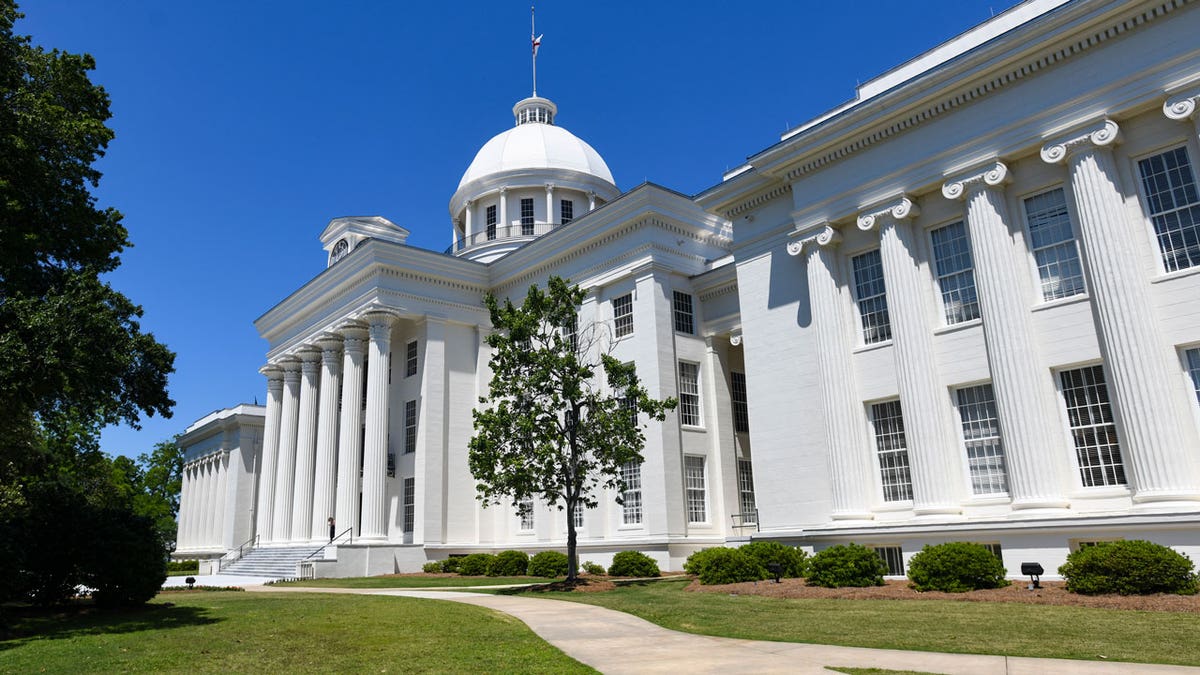Alabama Gov. Kay Ivey called Tuesday night for the creation of a limited school voucher program and announced support for two controversial measures before lawmakers this year: gambling legislation and absentee ballot restrictions.
Lawmakers kicked off the 2024 legislative session with key votes on gambling, elections and education looming. Ivey used her annual State of the State address to lay out priorities for the year.
The Republican governor announced her support for gambling legislation being developed in the Alabama House of Representatives that would authorize a statewide vote on a state lottery and a select number of casino sites. There has not been a statewide vote on gambling since former Gov. Don Siegelman’s proposed lottery failed in 1999. Bills have stalled under a mix of conservative opposition to legalized gambling as a revenue source and disputes over who would get casino licenses.
ATLANTIC CITY CASINOS NOT OBLIGED TO STOP COMPULSIVE GAMBLERS, JUDGE DETERMINES
“Now is the time for Alabama voters to have another say on this issue,” Ivey said Tuesday night.
Lawmakers who have seen draft versions of the bill said it would authorize a lottery and up to 10 casino sites in the state. Republican Rep. Chris Blackshear, who is sponsoring the gambling legislation, said a bill could be introduced as soon as Wednesday but noted that “everything with this is day by day.”
“We’ve kicked the can down the road too long,” he said. “All we are trying to do is put a good package together that allows the citizens of Alabama to decide what they want. Ultimately, their votes decide.”

The Alabama State Capitol is seen on May 15, 2019, in Montgomery, Alabama. Gov. Kay Ivey used her 2024 State of the State address to announce her support for education vouchers, new restrictions for absentee ballots, and holding a statewide vote on legalizing gambling and casinos. (Julie Bennett/Getty Images)
The bill would need to garner bipartisan support to win approval. The Alabama Constitution currently bans lotteries and casinos. To change that, the measure would have to be approved by three-fifths of members in both legislative chambers and then a majority of voters in a statewide vote.
Democratic Rep. Kelvin Lawrence, of Hayneville, whose district includes a long-running gambling hall, said he hopes the legislation provides “equitable treatment and fairness” to locations where voters previously approved some type of gambling. He said he wants to review the full bill before committing to voting yes.
“The devil is always in the details,” Lawrence said.
Ivey also announced a proposal for the creation of an education savings account that will allow families to tap public funds for private school tuition or other expenses. The proposed $100 million fund would provide up to $7,000 tuition vouchers initially aimed at low- and middle-income families and families of students with disabilities. It is smaller than a $500 million proposal introduced last year that critics said would drain too much from public education.
“My goal is to put us on a trajectory to make our program fully universal, while also maintaining our full and total support for public education,” Ivey said.
The bill, titled the Creating Hope and Opportunity for Our Students’ Education Act, or the CHOOSE Act, would allow families earning up to 300% of the federal poverty level — which would be about $77,460 for a family of three — to access the public dollars for private school tuition or other expenses. The income cap would go away after three years, but lower-income families and families with students with disabilities would have priority for receiving funds.
“I think we’ve landed at a very good place, a healthy but manageable amount for initiating the education savings accounts,” bill sponsor state Sen. Arthur Orr said, adding that he anticipates the bill will be in committee next week.
Democrats have expressed concern about using public dollars for private schools, while some Republicans may want a more sweeping proposal. A rival bill introduced Tuesday, similar to the one introduced last year, would provide up to $400 million in vouchers.
Ivey also voiced support for a Senate bill, up for a committee vote Wednesday, that would make it a crime to help someone vote by absentee ballot unless they are close family or a household member. Similar legislation sparked heated debate last year. Opponents have called it an attempt to make it harder for people to vote. Republican supporters say the change is needed to combat voter fraud.
The bill would make it a misdemeanor offense to order, prefill, request, collect or deliver an absentee ballot for someone who is not a household member or family. The penalty increases to a felony if the person is paid. The bill provides an exemption for election officials to help people and for those who are blind, disabled or who cannot read to ask someone for help.
CLICK HERE TO GET THE FOX NEWS APP
Ivey said the bill would close “loopholes that allow unaccountable, paid political operatives to pressure folks through the absentee voting process.”
Senate Minority Leader Bobby Singleton, D-Greensboro, questioned the need for the bill.
“I think this is a national Republican issue. I think the state is jumping on something,” Singleton said. “Ballot harvesting is not an issue in this state.”